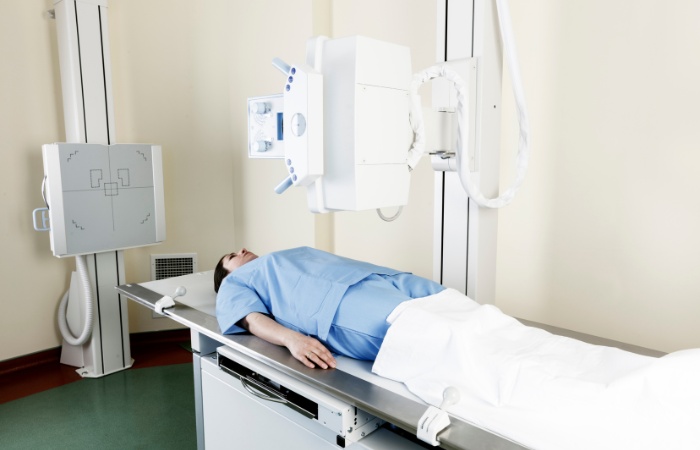Why Is Health Screening Important?

As the saying goes, “Prevention is better than cure.” Health screening is one of the most effective ways to prevent the onset or progression of various illnesses and diseases. But why is health screening important?
In simple terms, regular health screenings can detect potential health problems at an early stage, even before symptoms manifest themselves. This allows for prompt medical intervention and treatment, greatly improving the chances of a successful outcome.
Additionally, health screening can help identify risk factors for certain diseases, enabling individuals to make lifestyle changes that can reduce the chances of developing health issues in the future.
In this blog, we will delve deeper into the importance of health screening, the different types of screening available, and how to make the most of your screening appointments.
What Does Health Screening Mean?
Health screening refers to testing or examining individuals to detect signs of disease, conditions, or disorders before developing more severe health issues. Healthcare providers perform various screening tests and physical exams to identify potential health concerns, such as blood pressure, blood glucose, and family history.
Some of the most common health screenings include breast cancer screening, cervical cancer screening, colorectal cancer screening, and diabetes screening. Health screenings are essential for early diagnosis and timely treatment of illnesses, and they play a significant role in improving the quality of life for patients.
Why Is Health Screening Important?
Regular health screenings are important as they enable early detection of diseases, facilitate the prevention of diseases, improve treatment outcomes, reduce healthcare costs, and identify risk factors for diseases. Here, we explore why health screening is important.
Early Detection of Diseases
Health screenings help detect health conditions in the early stages, even before symptoms appear. Early detection of diseases such as cancer, diabetes, and cardiovascular disease can significantly improve the chances of successful treatment. For instance, routine breast cancer screening can detect breast cancer early, enabling early intervention and treatment.
Prevention of Diseases
Health screenings enable healthcare providers to identify health conditions and take appropriate measures to prevent the onset of diseases. For example, a regular blood pressure screening can identify individuals with high blood pressure, and healthcare providers can advise them on lifestyle changes such as exercise and dietary modifications to reduce the risk of developing heart disease.
Improved Treatment Outcomes
Early detection of health conditions can lead to better treatment outcomes. Early treatment of diseases such as cancer, diabetes, and hypertension can prevent the progression of the disease, reducing the chances of complications and improving the patient’s quality of life.
Reduction of Healthcare Costs
Health screenings can also help in reducing healthcare costs. Early disease detection can prevent expensive treatments and hospitalization, leading to significant cost savings. Routine health screenings can also identify potential health issues, enabling healthcare providers to take preventive measures to avoid costly treatments.
Read More: Why Health History is Important?
Different Types of Health Screening
Health screening is a process used to identify health conditions or diseases early, even without symptoms, to initiate prompt treatment or intervention. There are different types of health screening, which are described below.
- Physical Exams: Health care providers carry out physical exams to assess overall health, blood pressure, and vital signs. They may include eye exams, hearing tests, and checking for skin changes or unusual growths.
- Blood Tests: Blood tests are a common form of health screening that involves the analysis of a blood sample to assess for markers of disease or illness. Examples include cholesterol screening and blood glucose testing.
- Imaging Tests: Imaging tests use technology like X-rays, CT scans, and MRI scans to create images of the body to check for potential issues.
- Genetic Tests: Genetic testing looks at changes in DNA that may indicate an increased risk for certain diseases or conditions.
- Cancer Screening: Cancer screening aims to identify cancer early when it is more treatable. Examples include breast cancer screening, cervical cancer screening, and colorectal cancer screening.
- Sexually Transmitted Infection (STI) Screening: STI screening involves testing for infections transmitted through sexual contacts, such as chlamydia, gonorrhea, and HIV.
- Mental Health Screening: Mental health screening involves assessing mental health conditions, such as depression or anxiety, through questionnaires or interviews.
How to Prepare for a Health Screening?
Regular health screenings are an essential part of maintaining good health. They allow healthcare providers to identify potential health issues early, providing a better chance of successful treatment. Here are some tips to help you prepare for a health screening:
Medical History
Before the screening, gather any relevant medical history. This includes any current or past illnesses, surgeries, or medical conditions. You should also note any medications you are currently taking.
Family History
It is essential to know your family history, as some health conditions may have a genetic component. Knowing if your relatives have had cardiovascular disease, cancer, or other health issues can help your healthcare provider better assess your risk.
Specific Concerns
If you have any specific health concerns, discuss them with your healthcare provider during the screening. This can include difficulty sleeping, joint pain, or persistent headaches.
Physical Exam
A physical exam is often part of a health screening. Wear comfortable clothing and be prepared for your healthcare provider to check your vital signs, such as blood pressure and heart rate. You may also be asked to provide a blood sample for testing.
Cancer Screenings
Depending on your age and gender, you may need specific cancer screenings. For example, women should have regular cervical and breast cancer screenings, while men and women should be screened for colorectal cancer.
Quality of Life
Your healthcare provider may also ask about your lifestyle habits, such as diet and exercise, to get an overall picture of your health. They may make recommendations to improve your quality of life, such as increasing physical activity or making dietary changes.
Treatment and Follow-Up
If a health issue is identified during the screening, your healthcare provider will discuss treatment options and the next steps. They may also schedule a follow-up appointment to monitor your condition or perform additional tests.
Get to Know: Why Is The Concept Of Family Health Important?
Factors to Consider When Choosing a Health Screening Provider
When choosing a health screening provider, several important factors must be considered to ensure you receive quality care and accurate results.
- Accreditation: Look for accredited providers accredited by reputable organizations to ensure they meet high quality and safety standards.
- Reputation: Read reviews and ask for recommendations from friends and family to ensure the provider has a good reputation for providing accurate and thorough screenings.
- Cost: Compare costs and check with your insurance provider to understand what is covered and what you will be responsible for paying out of pocket.
- Location: Choose a provider that is conveniently located and accessible for you to minimize travel time and costs.
- Availability of Follow-up Care: Check whether the provider offers follow-up care and support if the screening detects any health issues requiring further treatment.
- Specific Screening Needs: Consider the specific screenings you need based on your medical history, family history, age, and gender, such as breast cancer screening for women or colorectal cancer screening for those with a family history of the disease.
Wrapping Up
Health screening is an important part of maintaining a healthy lifestyle. Hopefully, you have an overall idea of why is health screening important. Health screening can help identify warning signs of potential health issues and allow for early intervention.
Regular health screening can also provide peace of mind, as it can help detect any illnesses before they worsen. Ultimately, health screening is essential for detecting health issues and preventing potential diseases.




